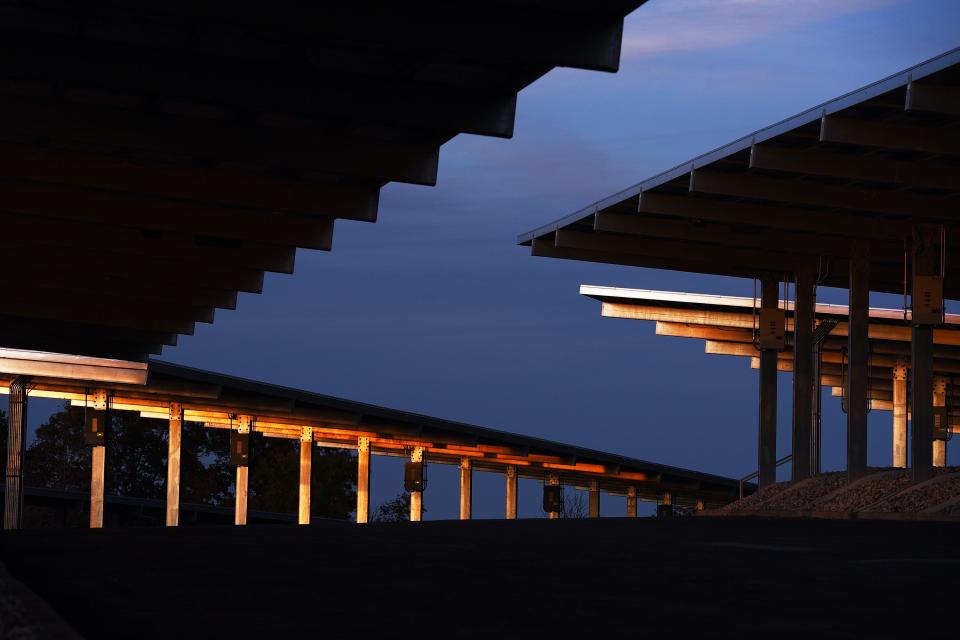To save costs, NJ Transit looks to make solar power deals
NJ Transit is nearing a deal to sign its first power purchase agreement to install a solar canopy at its Egg Harbor bus garage near Atlantic City.
Generally with such agreements, a vendor will pay the upfront costs to install and maintain the solar panels on someone else's property and will reap any tax credit benefits available. In exchange, the property owner will pay an agreed-upon rate for the energy generated, typically lower than the rate they were paying their local utility, reducing the energy costs at the property. The developer receives the income from the sale of electricity generated by the panels.
All of those details are still being finalized between NJ Transit and a vendor, the name of which will be disclosed after the agreement is signed, said Jim Smith, an agency spokesman.
Plan could reduce energy costs at NJ Transit facilities
The panels planned for the parking lot at Egg Harbor are expected to generate 1.1 megawatts of power annually. NJ Transit estimates that it uses about 1.7 megawatts of power at that facility each year.
“We could offset a good portion of our annual consumption with a solar installation,” said analyst Harrison Weiss, who presented an update on the power purchase agreement, or PPA, to the board’s energy and sustainability committee at a meeting Wednesday.

NJ Transit’s legal team is reviewing the PPA, and then it can be signed by both parties so permits can be secured for construction. Weiss said he expects construction to start five to seven months after the agreement is signed.
The agency hopes to learn from this process so it can replicate PPAs or similar agreements at other NJ Transit facilities. The agency owns dozens of properties around the state where roofs, parking lots and other areas could be used to host solar panels and offset energy consumption costs.
David Scotland, NJ Transit’s director of energy and sustainability programs, said a lot of factors have to be considered, such as whether a roof can handle solar panels, whether there's enough space for a solar canopy, and whether the energy generation would outweigh other costs, including PPA fees.
“We will develop and document an overall solar process," Scotland said. "We need to try to make the steps clearer for all involved. This will also assist with the ability to repeat the process at multiple sites.”
Solar projects in development
Among the solar projects NJ Transit has in development are the Passaic bus shelter, designing a standard solar bus structure, and adding solar to roofs of the Northern Bus Garage and the Meadowlands Maintenance Complex.
Doug O'Malley, executive director of the nonprofit Environment New Jersey, said the agency should move quickly to streamline the PPA process and expand solar canopies across the state, especially as NJ Transit begins to transition to an electric bus fleet, which will significantly increase the agency's energy consumption.
"Egg Harbor Township cannot be a one-off," O'Malley said. "There are a multitude of opportunities across NJ Transit’s network that are crying out for solar.
"This is a great way to reduce NJ Transit's carbon footprint, and it’s also a great way to reduce long-term electric bills for NJ Transit," O'Malley said.
This article originally appeared on NorthJersey.com: To save costs, NJ Transit looks to make solar power deals

